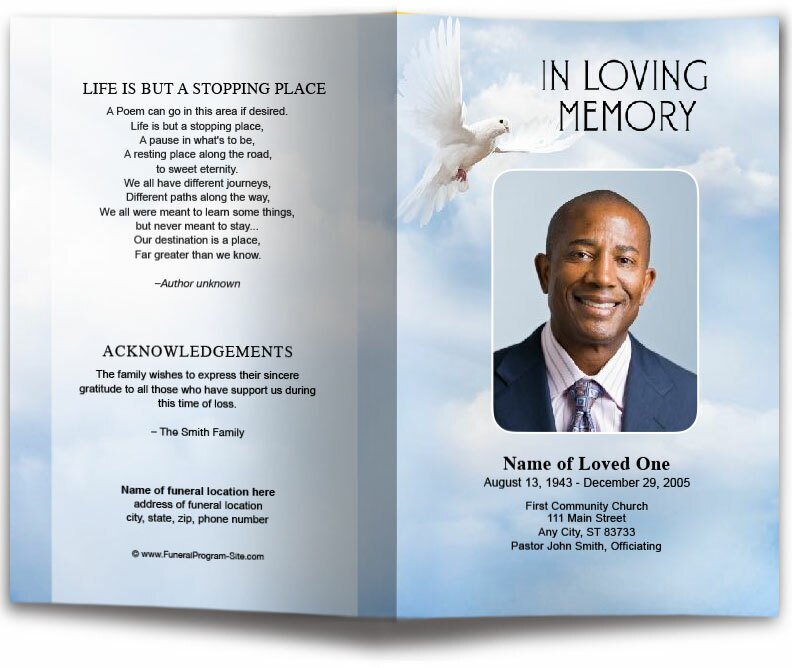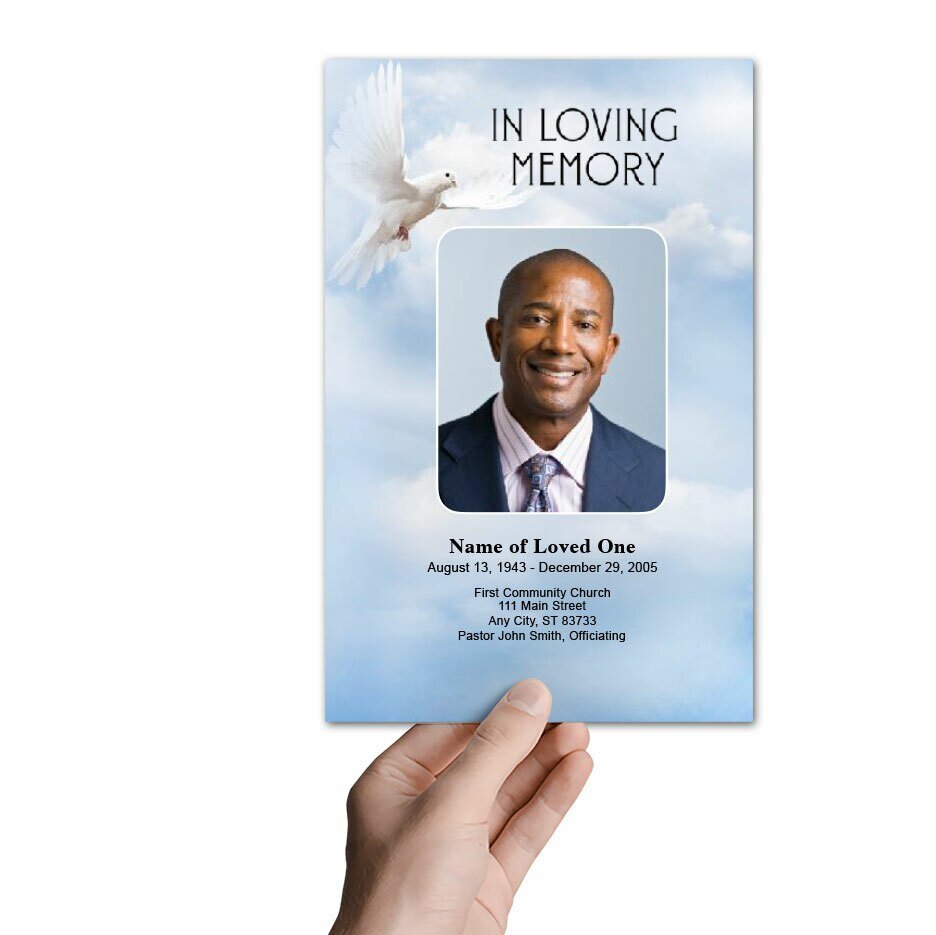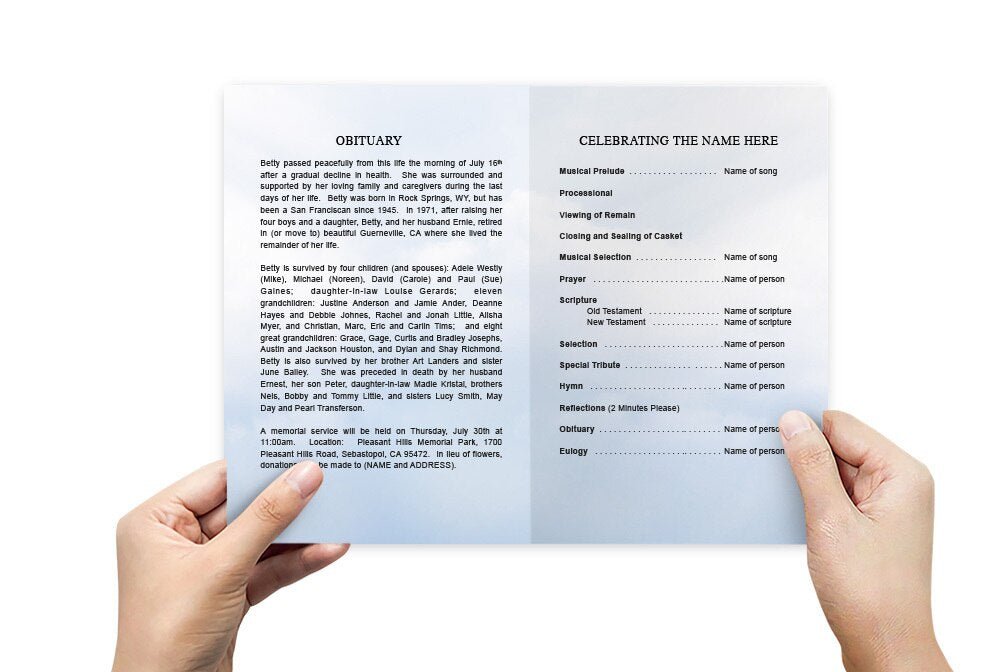Funeral Home Obituaries: Crafting Thoughtful Tributes and Understanding Their Importance

Obituaries are a significant part of the grieving process, serving as both a public notice of a person’s death and a celebration of their life. Funeral homes often play a key role in creating and publishing these obituaries, helping families honor their loved ones with carefully crafted words that capture their essence. This article delves into the purpose and structure of funeral home obituaries, provides tips for writing meaningful tributes, and explains how funeral homes assist in this process.
The Role and Purpose of Funeral Home Obituaries
Obituaries serve several essential purposes in the aftermath of a loved one’s passing. Firstly, they provide a formal announcement of death, informing the community, friends, and extended family of the loss. This information typically includes the deceased's name, age, date of death, and sometimes the cause of death. By making this announcement, obituaries help connect people who may not be in close contact but still wish to express their condolences or attend the funeral service.
Beyond the basic details, obituaries celebrate the life of the deceased by highlighting their accomplishments, relationships, and character. They serve as a historical record of a person's life, documenting their journey, values, and the legacy they leave behind. Obituaries also provide a sense of closure and comfort for grieving families, allowing them to share memories and pay tribute to their loved ones in a way that is both public and personal.
Funeral homes are often integral in crafting these obituaries. They guide families through the writing process, help gather necessary information, and ensure the obituary is written in a respectful and suitable tone. Additionally, funeral homes handle the logistics of submitting obituaries to local newspapers, online platforms, and their own websites, ensuring that the announcement reaches the desired audience.
Key Components of a Funeral Home Obituary
An effective obituary is more than just an announcement of death—it is a well-rounded tribute that honors the deceased's life. While there is no strict format for writing an obituary, several key components are commonly included to provide a comprehensive picture of the person's life:
-
Announcement of Death:
The obituary typically begins with a straightforward announcement of death, including the full name of the deceased, their age, date of death, and sometimes the place of death. This section may also mention the cause of death, depending on the family’s preference. -
Biographical Information:
This section includes important details about the deceased's life, such as their date and place of birth, names of their parents, and information about their upbringing and education. It may also cover significant life events, career achievements, and notable accomplishments that paint a picture of who the person was. -
Family Information:
Listing surviving family members (such as spouses, children, grandchildren, and siblings) as well as those who preceded the deceased in death provides context about the person's familial relationships. This section offers a sense of continuity and community, highlighting the family left behind and those who have passed. -
Personal Life and Achievements:
This part of the obituary should include personal anecdotes, hobbies, interests, and stories that reflect the deceased’s character and personality. It could also highlight community involvement, religious affiliations, volunteer work, or passions that were significant to them. Sharing these details makes the obituary more personal and relatable. -
Funeral and Memorial Service Details:
An obituary often concludes with information about the funeral or memorial service, including the date, time, and location. It may also include details about visitation, graveside services, or receptions. If the family requests donations to a specific charity in lieu of flowers, that information is typically included here as well. -
Closing Message or Quote:
Some families choose to end the obituary with a meaningful quote, scripture, or personal message. This can provide comfort and leave readers with a final thought that encapsulates the spirit of the deceased.
Examples of Funeral Home Obituaries
Here are some examples of funeral home obituaries that illustrate different styles and tones:
Example 1: Traditional Obituary
John Michael Roberts, 78, of Springfield, passed away peacefully on September 1, 2024, surrounded by his family. Born on March 15, 1946, in Springfield, John was the beloved son of George and Mary Roberts. He graduated from Springfield High School in 1964 and went on to earn a degree in Mechanical Engineering from the University of Illinois.
John worked at Springfield Manufacturing for over 40 years, where he was known for his dedication, work ethic, and kindness. He was a devoted husband to his wife, Carol, for 55 years and a loving father to his three children, Jennifer (Mark) Evans, Thomas (Karen) Roberts, and Susan (Michael) Davis. He was the proud grandfather of six grandchildren and cherished his role as a mentor and friend to many.
John was an active member of St. Andrew’s Church and a longtime volunteer at the Springfield Food Bank. He enjoyed gardening, fishing, and spending time with his family. His gentle spirit and generous heart will be deeply missed by all who knew him.
Visitation will be held on September 5, 2024, from 4:00 to 7:00 p.m. at the Springfield Funeral Home, 123 Main Street. A funeral service will take place on September 6, 2024, at 10:00 a.m. at St. Andrew’s Church, followed by interment at Oakwood Cemetery. In lieu of flowers, donations can be made to the Springfield Food Bank.
Example 2: Short and Concise Obituary
Jane Marie Thompson, 65, of Greenville, passed away on August 30, 2024. A loving wife, mother, and grandmother, Jane will be remembered for her kindness, strength, and sense of humor. A memorial service will be held on September 8, 2024, at 2:00 p.m. at Greenville Community Church, 456 Elm Street. Donations in her memory may be made to the American Cancer Society.
Example 3: Obituary with Personal Touch
Emily Grace Anderson, 89, of Riverdale, passed away peacefully on September 3, 2024, surrounded by her loving family. Emily was born on May 2, 1935, in Riverdale, to Harold and Clara Martin. She graduated from Riverdale High School and worked as a librarian at the Riverdale Public Library for over 35 years, where she inspired countless young readers.
Emily was an avid gardener, a talented baker, and a devoted grandmother to her five grandchildren. She was known for her beautiful flower arrangements, her famous apple pies, and her ability to make everyone feel special. She was preceded in death by her husband, James Anderson, and is survived by her children, David (Linda) Anderson and Margaret (John) Stone.
A celebration of Emily’s life will be held on September 10, 2024, at 11:00 a.m. at the Riverdale Methodist Church, 789 Willow Lane. In lieu of flowers, the family requests that donations be made to the Riverdale Public Library Children’s Program.
Tips for Writing a Meaningful Funeral Home Obituary
-
Gather Accurate Information: Ensure that all details about the deceased, such as names, dates, and locations, are accurate. Verify information with family members to avoid any errors.
-
Find the Right Balance: An obituary should be comprehensive but not overly long. Aim to provide enough detail to paint a clear picture of the deceased's life while keeping it concise and readable.
-
Reflect the Personality of the Deceased: Use language and anecdotes that reflect the personality, values, and essence of the deceased. A personalized obituary resonates more with readers and provides comfort to the bereaved.
-
Include a Call to Action: Provide clear information about the funeral or memorial service and any special requests from the family, such as donations in lieu of flowers.
-
Seek Professional Guidance: Funeral homes often have experienced staff who can guide you through the process of writing an obituary. They can help you choose the right format and tone and ensure that the obituary is appropriate for publication.
The Role of Funeral Homes in Obituary Publication
Funeral homes play a critical role in the publication of obituaries. They work closely with families to draft, review, and finalize the obituary, ensuring it meets both the family's needs and publication standards. Many funeral homes also offer obituary templates and examples to assist families in the writing process. Additionally, funeral homes manage the logistics of submitting obituaries to local newspapers, online platforms, and social media, ensuring broad dissemination of the information.
By leveraging their expertise, funeral homes help ease the burden on grieving families, allowing them to focus on mourning and remembrance rather than administrative tasks. This support is invaluable, particularly during a time when emotions are high, and attention to detail is crucial.
Funeral Home Obituaries Conclusion
Funeral home obituaries are more than just announcements; they are heartfelt tributes that capture the life, character, and legacy of the deceased. A well-crafted obituary can provide comfort to grieving families, preserve memories, and celebrate a life well-lived. By understanding the key components, following helpful tips, and utilizing the expertise of funeral homes, families can create meaningful obituaries that honor their loved ones and bring solace to those who read them.
written by The Funeral Program Site





























